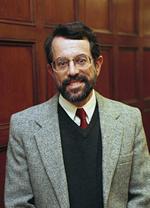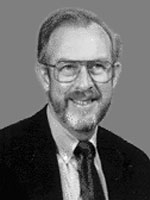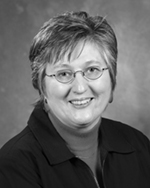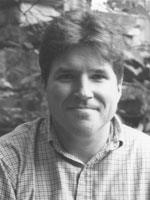|
EMI Faculty Steering Committee
Program Director:
Steven Yaffee
Professor of Natural Resources: Natural Resource Policy, Planning and Management
 Dr. Yaffee has worked for more than twenty years on federal endangered species, public lands and ecosystem management policy and is the author of Prohibitive Policy: Implementing the Federal Endangered Species Act (MIT Press, 1982) and The Wisdom of the Spotted Owl: Policy Lessons for a New Century (Island Press, 1994). He is a co-author of Ecosystem Management in the United States: An Assessment of Current Experience (Island Press, 1996) and Making Collaboration Work: Lessons from Innovation in Natural Resource Management (Island Press, 2000). His most recent work explores ecosystem management as a conceptual framework for managing natural resources, and multi-party, collaborative problem-solving efforts as necessary elements of an ecosystem approach. In 2002, Dr. Yaffee was appointed as the second Theodore Roosevelt Professor in Ecosystem Management. Presently, Dr. Yaffee serves on the Ecosystem Management and Conservation Biology faculty theme group which is exploring ways to strengthen this area of study and research throughout SNRE. Dr. Yaffee received his Ph.D. in 1979 from the Massachusetts Institute of Technology in environmental policy and planning. He holds a B.S. in resource planning and conservation and a M.S. in natural resource policy from The University of Michigan. Before joining the SNRE faculty, he was a faculty member at the Kennedy School of Government at Harvard University, and has been a researcher at the Oak Ridge National Laboratory and the Conservation Foundation/World Wildlife Fund. Dr. Yaffee has worked for more than twenty years on federal endangered species, public lands and ecosystem management policy and is the author of Prohibitive Policy: Implementing the Federal Endangered Species Act (MIT Press, 1982) and The Wisdom of the Spotted Owl: Policy Lessons for a New Century (Island Press, 1994). He is a co-author of Ecosystem Management in the United States: An Assessment of Current Experience (Island Press, 1996) and Making Collaboration Work: Lessons from Innovation in Natural Resource Management (Island Press, 2000). His most recent work explores ecosystem management as a conceptual framework for managing natural resources, and multi-party, collaborative problem-solving efforts as necessary elements of an ecosystem approach. In 2002, Dr. Yaffee was appointed as the second Theodore Roosevelt Professor in Ecosystem Management. Presently, Dr. Yaffee serves on the Ecosystem Management and Conservation Biology faculty theme group which is exploring ways to strengthen this area of study and research throughout SNRE. Dr. Yaffee received his Ph.D. in 1979 from the Massachusetts Institute of Technology in environmental policy and planning. He holds a B.S. in resource planning and conservation and a M.S. in natural resource policy from The University of Michigan. Before joining the SNRE faculty, he was a faculty member at the Kennedy School of Government at Harvard University, and has been a researcher at the Oak Ridge National Laboratory and the Conservation Foundation/World Wildlife Fund.
Faculty Steering Committee
J. David Allan
Professor of Natural Resources: Stream Ecology and Conservation Biology & Ecosystem Management
 Dr. Allan's teaching emphasis is on the application of ecological knowledge to species conservation and ecosystem management. Research focuses on freshwater systems, with particular emphasis on streams and rivers. Alllan has recently been selected to jointly head the National River Restoration Science Synthesis Project in partnership with American Rivers. Other projects include examining the extent and effect of flow alteration in Great Lakes Basin Rivers and Riverflows in the Great Lakes Basin. He is the co-author of River Conservation in North America: Science, Policy, and Practice, (John Wiley, 2000). Presently, Dr. Allan serves on the Ecosystem Management and Conservation Biology faculty theme group which is exploring ways to strengthen this area of study and research throughout SNRE. His Ph.D. in aquatic ecology is from the University of Michigan. Dr. Allan's webpage contains additional information on research interests, the courses he teaches, and aquatic conservation. Dr. Allan's teaching emphasis is on the application of ecological knowledge to species conservation and ecosystem management. Research focuses on freshwater systems, with particular emphasis on streams and rivers. Alllan has recently been selected to jointly head the National River Restoration Science Synthesis Project in partnership with American Rivers. Other projects include examining the extent and effect of flow alteration in Great Lakes Basin Rivers and Riverflows in the Great Lakes Basin. He is the co-author of River Conservation in North America: Science, Policy, and Practice, (John Wiley, 2000). Presently, Dr. Allan serves on the Ecosystem Management and Conservation Biology faculty theme group which is exploring ways to strengthen this area of study and research throughout SNRE. His Ph.D. in aquatic ecology is from the University of Michigan. Dr. Allan's webpage contains additional information on research interests, the courses he teaches, and aquatic conservation.
Burt Barnes
Professor of Natural Resources: Forest Ecology and Landscape Ecosystem Classification
 Dr. Barnes' teaching focus is in forest ecology, landscape ecology, ecology, biology, and identification of woody plants. His research focuses on the theory and application of the landscape ecosystem approach, and the diversity of ecosystems and biota in upland, riverine, and wetland ecosystems. His studies emphasize spatial mapping of landscape ecosystems as the basis for conserving and managing ecosystems at multiple scales. Specific areas of interest include genetic and systematic studies of aspen species (genus Populus), worldwide and comparative studies of Chinese and North American forests and species of the temperate zone. Presently, Dr. Barnes serves on the Ecosystem Management and Conservation Biology faculty theme group which is exploring ways to strengthen this area of study and research throughout SNRE. He holds a Ph.D. from the University of Michigan. Dr. Barnes' teaching focus is in forest ecology, landscape ecology, ecology, biology, and identification of woody plants. His research focuses on the theory and application of the landscape ecosystem approach, and the diversity of ecosystems and biota in upland, riverine, and wetland ecosystems. His studies emphasize spatial mapping of landscape ecosystems as the basis for conserving and managing ecosystems at multiple scales. Specific areas of interest include genetic and systematic studies of aspen species (genus Populus), worldwide and comparative studies of Chinese and North American forests and species of the temperate zone. Presently, Dr. Barnes serves on the Ecosystem Management and Conservation Biology faculty theme group which is exploring ways to strengthen this area of study and research throughout SNRE. He holds a Ph.D. from the University of Michigan.
Steve Brechin
Associate Professor of Natural Resources: International Environmental Issues
 Dr. Brechin's work focuses on the integration of social science perspectives with local to global environmental and natural resource issues. These issues include the sociological study of complex formal organizations with special interest in international organizations concerned with the environment, natural resources management, or sustainability and population-environment dynamics that focus on people and protected-area relationships, primarily in the developing world. His publications include Reinventing a Square Wheel: The Backlash to People-Sensitive Conservation and the Future of International Biodiversity Conservation Management (Society & Natural Resources, 2000). He holds a Ph.D. from the University of Michigan. Dr. Brechin's work focuses on the integration of social science perspectives with local to global environmental and natural resource issues. These issues include the sociological study of complex formal organizations with special interest in international organizations concerned with the environment, natural resources management, or sustainability and population-environment dynamics that focus on people and protected-area relationships, primarily in the developing world. His publications include Reinventing a Square Wheel: The Backlash to People-Sensitive Conservation and the Future of International Biodiversity Conservation Management (Society & Natural Resources, 2000). He holds a Ph.D. from the University of Michigan.
Daniel Brown
Associate Professor of Natural Resources: Geographic Information Systems and Spatial Analysis
 Dr. Brown's teaching interests are focused on conceptual and practical aspects of geographic information system (GIS), remote sensing, and spatial analysis. Research focuses on linking observable landscape patterns, obtained through remote sensing, ecological mapping, and digital terrain analysis, with ecological and social processes. His publications include Estimating error in an analysis of forest fragmentation change using North American Landscape Characterization (NALC) Data (Remote Sensing of Environment, 2000). Presently, Dr. Brown serves on the Ecosystem Management and Conservation Biology faculty theme group which is exploring ways to strengthen this area of study and research throughout SNRE. His Ph.D. in Geography is from the University of North Carolina at Chapel Hill. Dr. Brown's webpage contains additional information on research interests and courses he teaches. Dr. Brown's teaching interests are focused on conceptual and practical aspects of geographic information system (GIS), remote sensing, and spatial analysis. Research focuses on linking observable landscape patterns, obtained through remote sensing, ecological mapping, and digital terrain analysis, with ecological and social processes. His publications include Estimating error in an analysis of forest fragmentation change using North American Landscape Characterization (NALC) Data (Remote Sensing of Environment, 2000). Presently, Dr. Brown serves on the Ecosystem Management and Conservation Biology faculty theme group which is exploring ways to strengthen this area of study and research throughout SNRE. His Ph.D. in Geography is from the University of North Carolina at Chapel Hill. Dr. Brown's webpage contains additional information on research interests and courses he teaches.
James S. Diana
Professor of Natural Resources & Associate Dean of the School of Natural Resources and Environment: Aquatic Ecosystems and Fisheries
 Dr. Diana's major research interests are focused on the energetics of fish, including extensive work on the behavior and ecology of temperate fishes. His work emphasizes understanding the energy accumulation and use of fishes in both natural populations and aquaculture. He also has worked on studies of endangered species. His publications include Biology and Ecology of Fishes (Biological Sciences Press, 1995). He holds a Ph.D. from the University of Alberta. Dr. Diana's webpage contains additional information on research interests and courses he teaches. Dr. Diana's major research interests are focused on the energetics of fish, including extensive work on the behavior and ecology of temperate fishes. His work emphasizes understanding the energy accumulation and use of fishes in both natural populations and aquaculture. He also has worked on studies of endangered species. His publications include Biology and Ecology of Fishes (Biological Sciences Press, 1995). He holds a Ph.D. from the University of Alberta. Dr. Diana's webpage contains additional information on research interests and courses he teaches.
Donna L. Erickson
Associate Professor of Landscape Architecture: Landscape Planning and Rural Landscapes
 Professor Erickson's research and teaching foccusses are the central question: how does the spatial pattern of developed land affect ecological health and human experience? Her research is grounded in landscape planning and landscape ecology,which are interdisciplinary fields that use diverse frameworks for understanding built and natural landscapes. This work weaves together urban planning, landscape architecture, cultural geography and environmental policy. Landscape connectivity is a main theoretical construct for this research. Recent work has explored connected open space systems in metropolitan regions (along a gradient from highly urban to exurban areas). This research analyzes the implementation of metropolitan greenway networks, with an emphasis on comparative institutional structures. Using deep case study comparisons, typologies of North American greenway programs are developed, particularly focusing on traditional objectives (conservation, recreation and transportation) and on emerging objectives such as neighborhood revitaliation, education, etc. [A portion of this research was featured on the EMI website as a Featured Research Project in 2002.] Presently, Professor Erickson serves on the Ecosystem Management and Conservation Biology faculty theme group which is exploring ways to strengthen this area of study and research throughout SNRE. She holds a M.L.A.degree in Landscape Architecture from the Agricultural University - Wageningen in the Netherlands.Professor Erickson's webpage contains additional information on research interests and courses she teaches. Professor Erickson's research and teaching foccusses are the central question: how does the spatial pattern of developed land affect ecological health and human experience? Her research is grounded in landscape planning and landscape ecology,which are interdisciplinary fields that use diverse frameworks for understanding built and natural landscapes. This work weaves together urban planning, landscape architecture, cultural geography and environmental policy. Landscape connectivity is a main theoretical construct for this research. Recent work has explored connected open space systems in metropolitan regions (along a gradient from highly urban to exurban areas). This research analyzes the implementation of metropolitan greenway networks, with an emphasis on comparative institutional structures. Using deep case study comparisons, typologies of North American greenway programs are developed, particularly focusing on traditional objectives (conservation, recreation and transportation) and on emerging objectives such as neighborhood revitaliation, education, etc. [A portion of this research was featured on the EMI website as a Featured Research Project in 2002.] Presently, Professor Erickson serves on the Ecosystem Management and Conservation Biology faculty theme group which is exploring ways to strengthen this area of study and research throughout SNRE. She holds a M.L.A.degree in Landscape Architecture from the Agricultural University - Wageningen in the Netherlands.Professor Erickson's webpage contains additional information on research interests and courses she teaches.
Robert E. Grese
Associate Professor of Landscape Architecture: Ecological Restoration
 Professor Grese's interests are in landscape design and management approaches that respect the cultural and natural heritage of a region. He has done extensive work in ecological restoration, particularly on prairie and oak savannah ecosystems and the reintroduction of natural processes such as fire. In addition to his academic appointment, Grese is the director of the University of Michigan's Nichols Arboretum, a potential partner in the development of the site-based research work of the Center. Presently, Professor Grese serves on the Ecosystem Management and Conservation Biology faculty theme group which is exploring ways to strengthen this area of study and research throughout SNRE. He holds a M.S. in Landscape Architecture from the University of Wisconsin at Madison. Professor Grese's interests are in landscape design and management approaches that respect the cultural and natural heritage of a region. He has done extensive work in ecological restoration, particularly on prairie and oak savannah ecosystems and the reintroduction of natural processes such as fire. In addition to his academic appointment, Grese is the director of the University of Michigan's Nichols Arboretum, a potential partner in the development of the site-based research work of the Center. Presently, Professor Grese serves on the Ecosystem Management and Conservation Biology faculty theme group which is exploring ways to strengthen this area of study and research throughout SNRE. He holds a M.S. in Landscape Architecture from the University of Wisconsin at Madison.
Joan Iverson Nassauer
Professor of Landscape Architecture: Landscape Ecology and Design
 Professor Nassauer's research and teaching emphasize landscape perception, design and planning. Ecological function and the perception of nature in agricultural and urban landscapes provide the core framework for her work, including studies of what people value about their landscapes, rural landscape management and urban landscape ecology. She is a founding member of the International Association for Landscape Ecology, and the author of Placing Nature: Culture and Landscape Ecology (Island Press, 1997). Presently, Professor Nassauer serves on the Ecosystem Management and Conservation Biology faculty theme group which is exploring ways to strengthen this area of study and research throughout SNRE. Her M.L.A. is from Iowa State University. Professor Nassauer's Landscape Ecology, Perception, and Design Lab contains information on many of her research interests. Professor Nassauer's research and teaching emphasize landscape perception, design and planning. Ecological function and the perception of nature in agricultural and urban landscapes provide the core framework for her work, including studies of what people value about their landscapes, rural landscape management and urban landscape ecology. She is a founding member of the International Association for Landscape Ecology, and the author of Placing Nature: Culture and Landscape Ecology (Island Press, 1997). Presently, Professor Nassauer serves on the Ecosystem Management and Conservation Biology faculty theme group which is exploring ways to strengthen this area of study and research throughout SNRE. Her M.L.A. is from Iowa State University. Professor Nassauer's Landscape Ecology, Perception, and Design Lab contains information on many of her research interests.
Michael J. Wiley
Associate Professor of Natural Resources: Aquatic Ecosystem Modeling
 Dr. Wiley's interests revolve around understanding ecological processes in aquatic systems of all types and the application ecological knowledge to practical problems of resource management. His research interests include ecology of rivers and lakes, watershed management, community dynamics and population regulation, trout stream food webs, behavioral adaptations of aquatic insects, fish invertebrate interactions, and fisheries management. Dr. Wiley teaches coursework in aquatic and stream ecology. He holds a Ph.D. in Natural Resources from the University of Michigan. Dr. Wiley's webpage contains additional information on research interests and courses he teaches. Dr. Wiley's interests revolve around understanding ecological processes in aquatic systems of all types and the application ecological knowledge to practical problems of resource management. His research interests include ecology of rivers and lakes, watershed management, community dynamics and population regulation, trout stream food webs, behavioral adaptations of aquatic insects, fish invertebrate interactions, and fisheries management. Dr. Wiley teaches coursework in aquatic and stream ecology. He holds a Ph.D. in Natural Resources from the University of Michigan. Dr. Wiley's webpage contains additional information on research interests and courses he teaches.
Julia M. Wondolleck
Associate Professor of Natural Resources: Collaborative Resource Management
 Dr. Wondolleck is an expert in the use of dispute resolution and collaborative planning techniques in national forest management. She is the author or co-author of three books: Public Lands Conflict and Resolution: Managing National Forest Disputes (Plenum, 1988), Environmental Disputes: Community Involvement in Conflict Resolution (Island Press, 1990), and Making Collaboration Work: Lessons from Innovation in Natural Resource Management (Island Press, 2000). Recently she was a member of the U.S. Department of Agriculture's Committee of Scientists charged with outlining science-based reforms in national forest planning and management. Presently, Dr. Wondolleck serves on the Ecosystem Management and Conservation Biology faculty theme group which is exploring ways to strengthen this area of study and research throughout SNRE. Her Masters and Ph.D. in environmental policy and planning are from the Massachusetts Institute of Technology. Dr. Wondolleck is an expert in the use of dispute resolution and collaborative planning techniques in national forest management. She is the author or co-author of three books: Public Lands Conflict and Resolution: Managing National Forest Disputes (Plenum, 1988), Environmental Disputes: Community Involvement in Conflict Resolution (Island Press, 1990), and Making Collaboration Work: Lessons from Innovation in Natural Resource Management (Island Press, 2000). Recently she was a member of the U.S. Department of Agriculture's Committee of Scientists charged with outlining science-based reforms in national forest planning and management. Presently, Dr. Wondolleck serves on the Ecosystem Management and Conservation Biology faculty theme group which is exploring ways to strengthen this area of study and research throughout SNRE. Her Masters and Ph.D. in environmental policy and planning are from the Massachusetts Institute of Technology.
Donald R. Zak
Professor of Natural Resources: Terrestrial Ecosystem Processes
 Dr. Zak's focus on the spatial and temporal dynamics of carbon and nitrogen cycling within forested ecosystems provides an understanding of ecosystem-level variability that can be used in management regimes. He just received $977,758 grant from the Department of Energy (DOE) for his project entitled "Ecosystem Response to elevated Tropospheric Carbon Dioxide (CO2) and Ozone (03) is Regulated by Plant-Microbe Interactions in Soil. His work ranges from the fine scale of understanding microbial activity in soils to the global scale: the effects of increases in atmospheric CO2 on plant physiology. Presently, Dr. Zak serves on the Ecosystem Management and Conservation Biology faculty theme group which is exploring ways to strengthen this area of study and research throughout SNRE. He has published widely on these topics in the scientific literature and holds a Ph.D. from Michigan State University. Dr. Zak's focus on the spatial and temporal dynamics of carbon and nitrogen cycling within forested ecosystems provides an understanding of ecosystem-level variability that can be used in management regimes. He just received $977,758 grant from the Department of Energy (DOE) for his project entitled "Ecosystem Response to elevated Tropospheric Carbon Dioxide (CO2) and Ozone (03) is Regulated by Plant-Microbe Interactions in Soil. His work ranges from the fine scale of understanding microbial activity in soils to the global scale: the effects of increases in atmospheric CO2 on plant physiology. Presently, Dr. Zak serves on the Ecosystem Management and Conservation Biology faculty theme group which is exploring ways to strengthen this area of study and research throughout SNRE. He has published widely on these topics in the scientific literature and holds a Ph.D. from Michigan State University.
|


 Dr. Yaffee has worked for more than twenty years on federal endangered species, public lands and ecosystem management policy and is the author of Prohibitive Policy: Implementing the Federal Endangered Species Act (MIT Press, 1982) and
Dr. Yaffee has worked for more than twenty years on federal endangered species, public lands and ecosystem management policy and is the author of Prohibitive Policy: Implementing the Federal Endangered Species Act (MIT Press, 1982) and  Dr. Allan's teaching emphasis is on the application of ecological knowledge to species conservation and ecosystem management. Research focuses on freshwater systems, with particular emphasis on streams and rivers. Alllan has recently been selected to jointly head the
Dr. Allan's teaching emphasis is on the application of ecological knowledge to species conservation and ecosystem management. Research focuses on freshwater systems, with particular emphasis on streams and rivers. Alllan has recently been selected to jointly head the  Dr. Barnes' teaching focus is in forest ecology, landscape ecology, ecology, biology, and identification of woody plants. His research focuses on the theory and application of the landscape ecosystem approach, and the diversity of ecosystems and biota in upland, riverine, and wetland ecosystems. His studies emphasize spatial mapping of landscape ecosystems as the basis for conserving and managing ecosystems at multiple scales. Specific areas of interest include genetic and systematic studies of aspen species (genus Populus), worldwide and comparative studies of Chinese and North American forests and species of the temperate zone. Presently, Dr. Barnes serves on the
Dr. Barnes' teaching focus is in forest ecology, landscape ecology, ecology, biology, and identification of woody plants. His research focuses on the theory and application of the landscape ecosystem approach, and the diversity of ecosystems and biota in upland, riverine, and wetland ecosystems. His studies emphasize spatial mapping of landscape ecosystems as the basis for conserving and managing ecosystems at multiple scales. Specific areas of interest include genetic and systematic studies of aspen species (genus Populus), worldwide and comparative studies of Chinese and North American forests and species of the temperate zone. Presently, Dr. Barnes serves on the  Dr. Brechin's work focuses on the integration of social science perspectives with local to global environmental and natural resource issues. These issues include the sociological study of complex formal organizations with special interest in international organizations concerned with the environment, natural resources management, or sustainability and population-environment dynamics that focus on people and protected-area relationships, primarily in the developing world. His publications include Reinventing a Square Wheel: The Backlash to People-Sensitive Conservation and the Future of International Biodiversity Conservation Management (Society & Natural Resources, 2000). He holds a Ph.D. from the University of Michigan.
Dr. Brechin's work focuses on the integration of social science perspectives with local to global environmental and natural resource issues. These issues include the sociological study of complex formal organizations with special interest in international organizations concerned with the environment, natural resources management, or sustainability and population-environment dynamics that focus on people and protected-area relationships, primarily in the developing world. His publications include Reinventing a Square Wheel: The Backlash to People-Sensitive Conservation and the Future of International Biodiversity Conservation Management (Society & Natural Resources, 2000). He holds a Ph.D. from the University of Michigan.  Dr. Brown's teaching interests are focused on conceptual and practical aspects of geographic information system (GIS), remote sensing, and spatial analysis. Research focuses on linking observable landscape patterns, obtained through remote sensing, ecological mapping, and digital terrain analysis, with ecological and social processes. His publications include Estimating error in an analysis of forest fragmentation change using North American Landscape Characterization (NALC) Data (Remote Sensing of Environment, 2000). Presently, Dr. Brown serves on the
Dr. Brown's teaching interests are focused on conceptual and practical aspects of geographic information system (GIS), remote sensing, and spatial analysis. Research focuses on linking observable landscape patterns, obtained through remote sensing, ecological mapping, and digital terrain analysis, with ecological and social processes. His publications include Estimating error in an analysis of forest fragmentation change using North American Landscape Characterization (NALC) Data (Remote Sensing of Environment, 2000). Presently, Dr. Brown serves on the  Dr. Diana's major research interests are focused on the energetics of fish, including extensive work on the behavior and ecology of temperate fishes. His work emphasizes understanding the energy accumulation and use of fishes in both natural populations and aquaculture. He also has worked on studies of endangered species. His publications include Biology and Ecology of Fishes (Biological Sciences Press, 1995). He holds a Ph.D. from the University of Alberta. Dr. Diana's
Dr. Diana's major research interests are focused on the energetics of fish, including extensive work on the behavior and ecology of temperate fishes. His work emphasizes understanding the energy accumulation and use of fishes in both natural populations and aquaculture. He also has worked on studies of endangered species. His publications include Biology and Ecology of Fishes (Biological Sciences Press, 1995). He holds a Ph.D. from the University of Alberta. Dr. Diana's  Professor Erickson's research and teaching foccusses are the central question: how does the spatial pattern of developed land affect ecological health and human experience? Her research is grounded in landscape planning and landscape ecology,which are interdisciplinary fields that use diverse frameworks for understanding built and natural landscapes. This work weaves together urban planning, landscape architecture, cultural geography and environmental policy. Landscape connectivity is a main theoretical construct for this research. Recent work has explored connected open space systems in metropolitan regions (along a gradient from highly urban to exurban areas). This research analyzes the implementation of metropolitan greenway networks, with an emphasis on comparative institutional structures. Using deep case study comparisons, typologies of North American greenway programs are developed, particularly focusing on traditional objectives (conservation, recreation and transportation) and on emerging objectives such as neighborhood revitaliation, education, etc. [A portion of this research was featured on the EMI website as
Professor Erickson's research and teaching foccusses are the central question: how does the spatial pattern of developed land affect ecological health and human experience? Her research is grounded in landscape planning and landscape ecology,which are interdisciplinary fields that use diverse frameworks for understanding built and natural landscapes. This work weaves together urban planning, landscape architecture, cultural geography and environmental policy. Landscape connectivity is a main theoretical construct for this research. Recent work has explored connected open space systems in metropolitan regions (along a gradient from highly urban to exurban areas). This research analyzes the implementation of metropolitan greenway networks, with an emphasis on comparative institutional structures. Using deep case study comparisons, typologies of North American greenway programs are developed, particularly focusing on traditional objectives (conservation, recreation and transportation) and on emerging objectives such as neighborhood revitaliation, education, etc. [A portion of this research was featured on the EMI website as  Professor Grese's interests are in landscape design and management approaches that respect the cultural and natural heritage of a region. He has done extensive work in ecological restoration, particularly on prairie and oak savannah ecosystems and the reintroduction of natural processes such as fire. In addition to his academic appointment, Grese is the director of the
Professor Grese's interests are in landscape design and management approaches that respect the cultural and natural heritage of a region. He has done extensive work in ecological restoration, particularly on prairie and oak savannah ecosystems and the reintroduction of natural processes such as fire. In addition to his academic appointment, Grese is the director of the  Professor Nassauer's research and teaching emphasize landscape perception, design and planning. Ecological function and the perception of nature in agricultural and urban landscapes provide the core framework for her work, including studies of what people value about their landscapes, rural landscape management and urban landscape ecology. She is a founding member of the International Association for Landscape Ecology, and the author of Placing Nature: Culture and Landscape Ecology (Island Press, 1997). Presently, Professor Nassauer serves on the
Professor Nassauer's research and teaching emphasize landscape perception, design and planning. Ecological function and the perception of nature in agricultural and urban landscapes provide the core framework for her work, including studies of what people value about their landscapes, rural landscape management and urban landscape ecology. She is a founding member of the International Association for Landscape Ecology, and the author of Placing Nature: Culture and Landscape Ecology (Island Press, 1997). Presently, Professor Nassauer serves on the  Dr. Wiley's interests revolve around understanding ecological processes in aquatic systems of all types and the application ecological knowledge to practical problems of resource management. His research interests include ecology of rivers and lakes, watershed management, community dynamics and population regulation, trout stream food webs, behavioral adaptations of aquatic insects, fish invertebrate interactions, and fisheries management. Dr. Wiley teaches coursework in aquatic and stream ecology. He holds a Ph.D. in Natural Resources from the University of Michigan. Dr. Wiley's
Dr. Wiley's interests revolve around understanding ecological processes in aquatic systems of all types and the application ecological knowledge to practical problems of resource management. His research interests include ecology of rivers and lakes, watershed management, community dynamics and population regulation, trout stream food webs, behavioral adaptations of aquatic insects, fish invertebrate interactions, and fisheries management. Dr. Wiley teaches coursework in aquatic and stream ecology. He holds a Ph.D. in Natural Resources from the University of Michigan. Dr. Wiley's  Dr. Wondolleck is an expert in the use of dispute resolution and collaborative planning techniques in national forest management. She is the author or co-author of three books: Public Lands Conflict and Resolution: Managing National Forest Disputes (Plenum, 1988), Environmental Disputes: Community Involvement in Conflict Resolution (Island Press, 1990), and
Dr. Wondolleck is an expert in the use of dispute resolution and collaborative planning techniques in national forest management. She is the author or co-author of three books: Public Lands Conflict and Resolution: Managing National Forest Disputes (Plenum, 1988), Environmental Disputes: Community Involvement in Conflict Resolution (Island Press, 1990), and  Dr. Zak's focus on the spatial and temporal dynamics of carbon and nitrogen cycling within forested ecosystems provides an understanding of ecosystem-level variability that can be used in management regimes. He just received $977,758 grant from the Department of Energy (DOE) for his project entitled "Ecosystem Response to elevated Tropospheric Carbon Dioxide (CO2) and Ozone (03) is Regulated by Plant-Microbe Interactions in Soil. His work ranges from the fine scale of understanding microbial activity in soils to the global scale: the effects of increases in atmospheric CO2 on plant physiology. Presently, Dr. Zak serves on the
Dr. Zak's focus on the spatial and temporal dynamics of carbon and nitrogen cycling within forested ecosystems provides an understanding of ecosystem-level variability that can be used in management regimes. He just received $977,758 grant from the Department of Energy (DOE) for his project entitled "Ecosystem Response to elevated Tropospheric Carbon Dioxide (CO2) and Ozone (03) is Regulated by Plant-Microbe Interactions in Soil. His work ranges from the fine scale of understanding microbial activity in soils to the global scale: the effects of increases in atmospheric CO2 on plant physiology. Presently, Dr. Zak serves on the